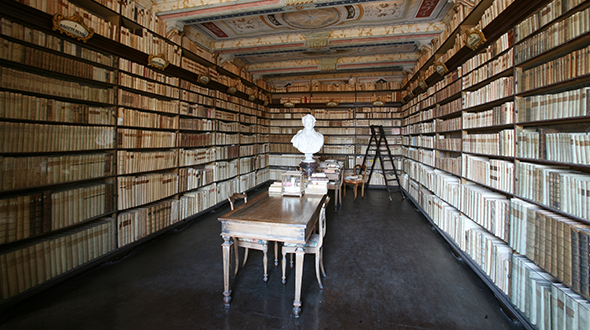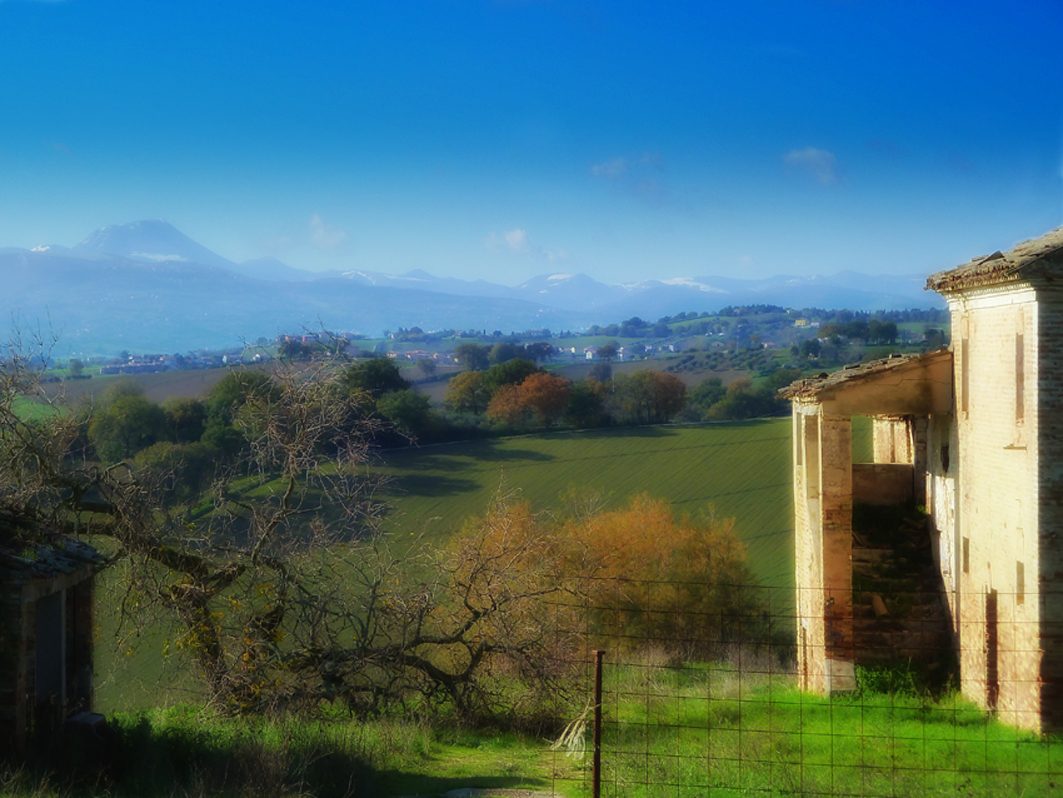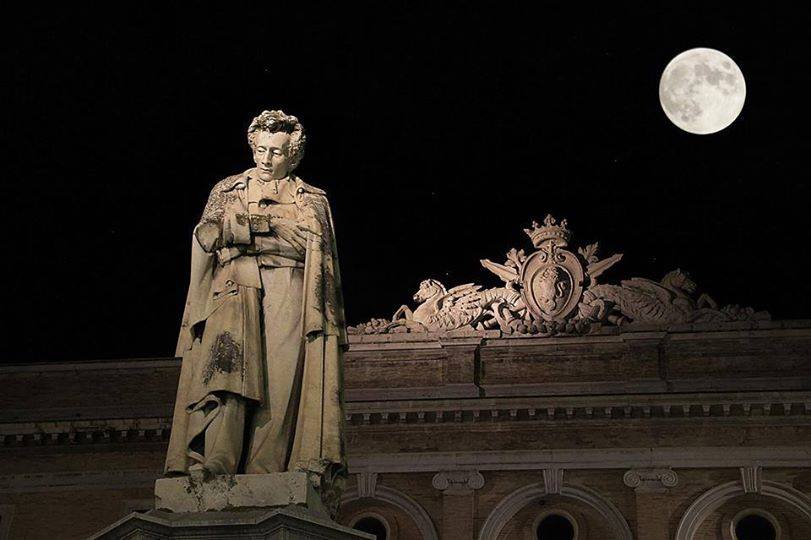{:it}“ Del luogo dove si è passata l’infanzia è bellissima e dolcissima cosa il ricordarsi..” scriveva Giacomo Leopardi.
Bisogna vedere Recanati e ancor di più occorre vedere Palazzo Leopardi. Aiuta a capire.
Questo afferma Corrado Augias nel suo ultimo libro, dedicato all’Italia ( Questa nostra Italia, ed. Einaudi. Luoghi del cuore e della memoria 2017 ) : “ La piazzetta di fronte, le viuzze intorno mostrano da quale esiguità e banalità di spazi il poeta seppe cavare significati che superano la dimensione fisica per farsi archetipi del sentire umano.”
In quegli spazi Giacomo studiò e scrisse così tanto da rovinarsi la salute, “ ma che altro si può fare ?” si lamentava con il suo amico Giordani, “ unico divertimento è quello che mi ammazza: tutto il resto è noia.”
Eppure è qui che scrive “ Vaghe stelle dell’Orsa “ o la poesia per eccellenza che è “ l’Infinito”, mentre dal giardino di casa contempla le colline che si susseguono interminabili , è dalla finestra della sua camera che descrive nella Sera del di di festa “ Dolce e chiara è la notte e senza vento/ E queta sovra i tetti e in mezzo agli orti/ Posa la luna ,e di lontan rivela / Serena ogni montagna”
Occorre vedere la bella biblioteca di trentamila volumi del conte Monaldo, che si può visitare ogni giorno dell’anno, dove Giacomo trascorreva le sue giornate.
“ Sulla porta ci sta scritto ch’ella è fatta per li cittadini e sarebbe aperta a tutti. Ora quanti pensa Ella che la frequentino? “ scrive ancora Giacomo al Giordani, unica ancora di salvezza in quel perdersi nel nulla. Ma che nulla!

“Quel non avere mai un letterato con cui trattenersi, quel serbarsi tutti i pensieri per sé, quel non poter sventolare e dibattere le proprie opinioni.” Era ciò che costrinse Giacomo a fuggire dal natio borgo selvaggio e non tornarvi mai più.
Tuttavia è qui che il genio è nato e cresciuto, qui che grazie a suo padre Monaldo, potè immergersi in uno “ studio matto e disperatissimo” e diventare il nostro più amato poeta nazionale.
Vale la pena una visita in questi luoghi bellissimi, oggi ovviamente diversi da un tempo ma in fondo anche sempre uguali, contornati da quell’ondeggiante mare verde dove il naufragar è dolce e colmo della infinita poesia di Giacomo.
Quest'ultima foto è stata gentilmente concessa da www.marchecountryhomes.com - Case e casali nelle Marche
{:}{:en}
You have to see Recanati and even more you have to visit Palazzo Leopardi. It helps you understand.
“Del luogo dove si è passata l’infanzia è bellissima e dolcissima cosa il ricordarsi [Of the place where you spent your childhood the most beautiful and sweetest thing is the recollection]…” wrote Giacomo Leopardi.
This is what Corrado Augias wrote on his new book, dedicated to Italy (“Questa nostra Italia, Luoghi del cuore e della memoria”, ed. by Einaudi 2017): “La piazzetta di fronte, le viuzze intorno mostrano da quale esiguità e banalità di spazi il poeta seppe cavare significati che superano la dimensione fisica per farsi archtipi del sentire umano [The opposite small square, the near lanes show the scarceness and banality from which the poet was able to extract meanings which exceed physical dimension and turn into archetypes of human feeling]”.
Those were the spaces where Giacomo studied and wrote so much that he got sick, “what else can I do?” he complained to his friend Giordani, “the only amusement is the one that is killing me: everything else is boring”.
Still, that is where he wrote “Vaghe stelle dell’Orsa” or his most famous poem “The Infinite” while he was contemplating from his garden the neverending hills. He was looking out from the window of his bedroom that he described in “Sera del dì di festa”: “Dolce e chiara è la notte e senza vento / E queta sovra i tetti e in mezzo agli orti / Posa la luna, e di lontan rivela / Serena ogni montagna [Sweet and bright is the night and windless / And calm upon the roofs and among the gardens / The moon poses, and from afar reveals / Peaceful every mountain]”.
 You have to visit the beautiful library with its thirty-thousand books of Count Monaldo, every day of the year, where Giacomo used to spend his days.
You have to visit the beautiful library with its thirty-thousand books of Count Monaldo, every day of the year, where Giacomo used to spend his days.
“Sulla porta ci sta scritto ch’ella è fatta per li cittadini e sarebbe aperta a tutti. Ora quanti pensa Ella che la frequentino? [On the door, you can read that it was made for the citizens and it is open for everyone. How many people pay a visit, would you think?]”, wrote Giacomo to Giordani, the only saving anchor in that nothingness. What a nothingness, indeed!
“Not having a literate to entertain himself, keeping all his thoughts for himself, not having the opportunity to show and discuss his opinions”, this was what made Giacomo escape his native and wild borgo, never to go back there again.
However that is the place where the genius was born and grew up, where he could enjoy, thanks to his father Monaldo, “a crazy and very desperate study” and he became the most loved Italian poet.
It is well worth a visit to these beautiful places, they look different today though nothing has really changed, framed by the heaving green sea where it would be so sweet to go under and full of Giacomo’s never-ending poetry.{:}
